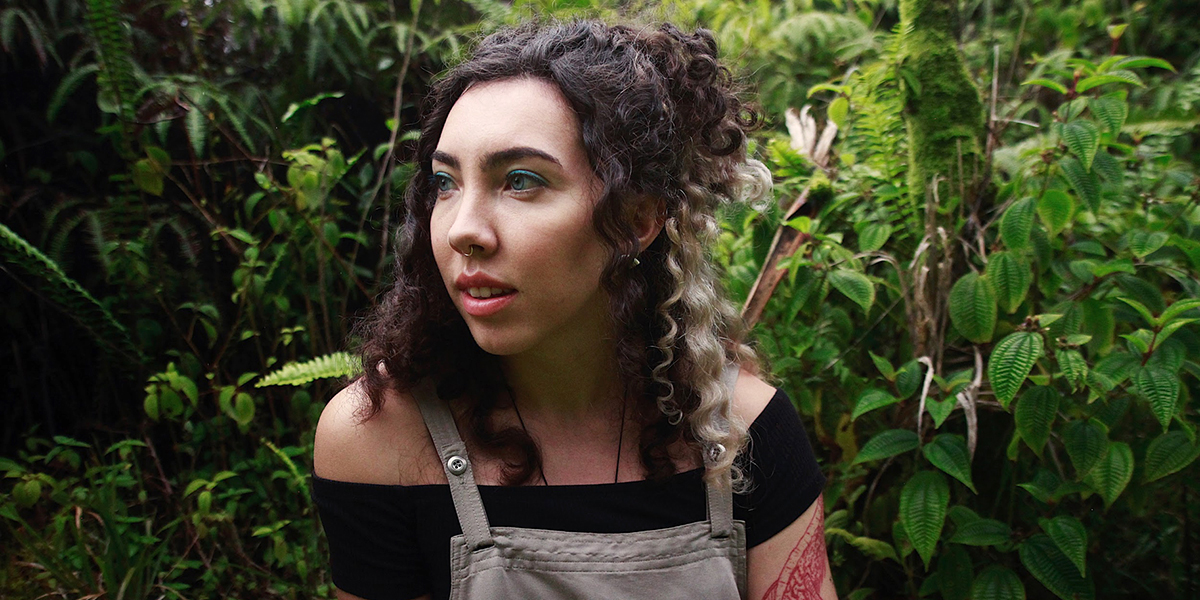Tell us a little about yourself.
My name is Anya Ellyn Benavides. I was born in Merced, California, which connects me to my Latinx ancestry from my birth father’s side. From my mother’s side, there is a mix of mostly Northern European ancestors who settled on Turtle Island in the last three to five generations. However, the place that feels most like home is Hilo, Hawaiʻi, as this is where I grew up and was embraced with care from my hānai (adopted) father.
The disconnect and curiosity that sprouted from my mixed ancestry led me to a path of travel that lasted throughout my studies. During my master’s in adult education for social change, I lived in three countries (Scotland, Malta, and Estonia). Traveling expanded my perspectives, helped me recognize my privileges, and also helped me realize the deep love and commitment I feel to my home.
Practicing yoga, reading, writing and doing anything I can outside have all helped me find solace on my journey of self-discovery and put me on the path to leading a life dedicated to social justice. I love rainbows, corals, saltwater, sunrises and sunsets. My 5-year-old brother Kaiolohia and 3-year-old sister Moanianilehua also bring light, love and hope to my life.
Why is joining the JCI VISTA Fellows program important for you and your future?
As someone who is not Indigenous to this land but who has a deep love for the land and my community, I feel that it is my kuleana (responsibility) to protect and care for these lands. There is no place I would rather be, no other place that feels like home, and I believe that we should take care of our homes. Part of my kuleana is also recognizing that this land is stolen and being a part of changing the insidious impacts of colonialism and capitalism.
This sustainability VISTA is rooted in Aloha ʻĀina (love of the land) and believes in creating not just a sustainable, but an abundant future for Hawaiʻi. I want to be a part of a program that is intersectional in its nature, and understands that the impacts of the climate crisis are not simply caused by fossil fuels, but also by colonization, capitalism, Western imperialism and racism.
My future is still foggy, but I envision an intersection of education and intersectional sustainability rooted in Aloha ʻĀina. I want to be a part of the change that heals our Earth, and I believe that this position, and especially the wonderful people who I will be working with, can guide me as I trek on that journey.
What kind of work do you hope to do after the program wraps up?
I hope to pursue a PhD, as something I am passionate about is working to dismantle academic elitism through education and dialogue. If I do, my focus will likely be on ecofascism, related to sustainability and education in Hawaiʻi. I’d like to help expose the racist roots within the history of Western science, and how that impacts the world today—not to disregard Western science, but to explain how it has been used to devalue Indigenous science, and also promote racism around the world. Understanding the root of a problem can then help us heal, and healing is also what I’m hoping to be a part of.
The other work that is really calling me is coral reef restoration through education outreach. I’ve always felt a strong connection to the reef, and I see myself dedicating my work to healing it.
If you could change anything about our world, what would you change and why?
I wish we could all see each other as humans, and understand that without the land we have nothing. I wish that destroying the land would hurt all of us to our very core. I wish we all understood that the Earth literally is our mother. Even further, without the land, we lose our very selves, as we are so deeply and cosmically connected to her. We are created from the same materials, and I wish we could collectively remember that, and act with love.
